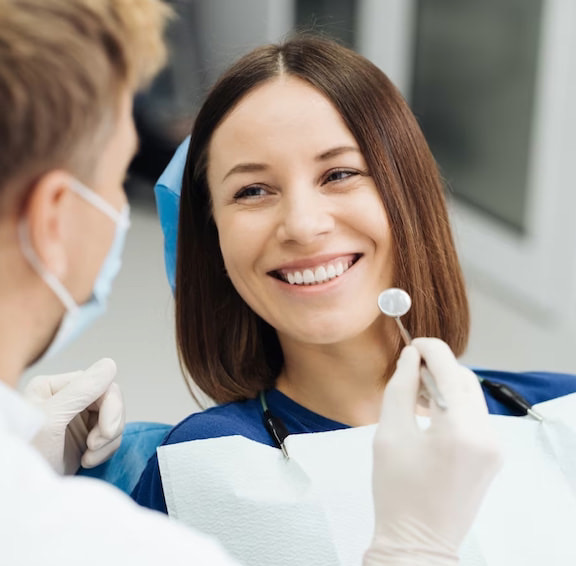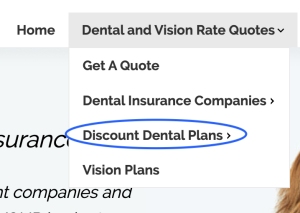What are dental implant grants, and how can you get one to finance your dental work?
To make dental care more accessible to a wider population, some organizations offer grants and other types of funding, like dental implant grants, cosmetic dental grants, or dental grants for adults and kids in general. These grants can make expensive procedures free or low-cost for those who need them.
In this article, we’ll go through some of your options for dental grants, including:
- Dental grants for implants
- Dental grants for seniors
- Dental grants for disabled people
- Dental grants for low-income adults
- Cosmetic dentistry grants
- Dental grants for veterans
We hope this information helps you find the affordable dental care that you need.
- How do you get a dental implant grant? Do your research, and ask around. Go to your local community health center, and ask your dentist. It’s not easy to find dental implant grants, and you may need to consider your alternatives.
- Other ways to finance dental care: Dental loans, dental insurance, and dental savings plans are all ways to help you pay for treatment like implants. A dental loan gives you money to pay upfront; insurance provides partial coverage, and savings plans gives you discounts.
- Finding grants for adults with disabilities: The Dental LIfeline Network specializes in providing dental grants to people with disabilities and those considered ‘medically fragile.’ You can go to their website to find out more.
- Does Medicaid cover implants? In some states Medicaid may cover dental implants for adults if the procedure is considered medically necessary. To find out, you will need to speak with your state’s Medicaid system to confirm which services are covered.
What are dental implant grants?
Before we begin, you can compare the best dental insurance plans in your area now! Enter your zip code and DOB below to get your free quote.


Dental implant grants are programs or opportunities that provide financial assistance to individuals seeking to cover the costs of dental implants. It helps provide dental implant treatment to people who may have financial limitations, making it more accessible for them.
These grants are not as common as other forms of financial aid, and it’s important to note that they may not cover the entire cost of the dental implant procedure. Instead, they may provide partial funding or assistance.
How to get dental implant grants
If you are looking to replace missing teeth with a dental implant, whether for cosmetic dentistry reasons or health reasons, then you are probably aware that implants are often considered to be the best tooth replacement solution. The only problem with this is that implants can be very expensive. So it only makes sense that you are looking for dental grants for implants. Let’s have a look at some of your dental grant options.
DentaQuest Community Response Fund
DentaQuest offers grants and funding for community health centers around Pennsylvania. Their mission is to help these centers provide the services needed by their community. One of the ways they achieve this is through dental grants.


If you live in Pennsylvania, you should visit your local community health center because they may be able to put grant money towards helping you fund the dental care that you need.
To find your local community health center, you can visit this website: https://findahealthcenter.hrsa.gov/
Dental Preventive Clinical Support Program
This program offers grants to organizations around the US, especially Tribal organizations that are working to provide healthcare and dental care to members of their community who need help funding their treatment.
These grants especially address the challenges that are typically associated with preventive and clinical programs.
Healthier Smiles Grant Program
This grant program is funded by the Mars Wrigley Foundation. It is provided to members of the American Dental Hygienists Association who are interested in receiving dental grants to increase access to care for those in need in their communities.
With this grant, dental hygienists can develop and implement community health and dental projects that respond to the needs of those in their community.
The ADA Foundation
The ADA Foundation has a needs-based grant program that helps dentists and their dependents with living expenses. These grants are meant to help the applicants cover their daily essentials and emergency expenses as well.
The ADA also works with other nonprofit organizations to provide grants that help fund dental work for underserved communities.
Medicaid
Medicaid is not technically a grant, it’s actually a form of state-funded insurance, and not all states offer dental coverage with Medicaid.
But, if you have Medicaid, and you need implants for a serious health reason, then Medicaid may be able to cover part of the costs, just like a dental grant would. You should speak with your dentist and your provider to find out more.
Types of dental implant grants
Below are dental implant grants organized by the type you are looking for.
Government grants for dental implants
If you are eligible for Medicaid, depending on the state you live in, there’s a possibility that this grant program could cover your implants. To find out more about Medicaid, you can read our article here.
Many states may offer eligible residents partial or full grants from local governments to cover certain dental procedures. Applications typically have the following conditions:
- Proof of resident eligibility for that state.
- Clearance from a treating and participating provider that basic oral health needs have been addressed and only the outstanding covered dental treatment is needed.
- Able to start the approved treatment within 30 days of acceptance into the program.
- Money granted typically has to be spent within a certain time frame(e.g., 3 months).
- Treatment is usually exclusive to approved esthetic/cosmetic treatments covered in the grants.
- Free to apply and are usually valid for 1 year.
Other sources of patient dental grants can be available through state dental associations in the US.


If dental insurance is too expensive, consider a dental discount plan. Dental discount plans are cheaper than insurance, and offer discounts on all dental care including implants.
You can search and find out more about these plans by going to Dentalinsurance.com. Click the button below for a free no-obligation quote.
Navigate to the ‘Dental and Vision Rate Quotes’ drop-down menu and click on ‘Dental discount plans’.
Dental implant grants for seniors
Low-income seniors who need implants are welcome to apply for any of the cosmetic and implant dentistry grants listed in this article. When looking for grants for seniors, a good place to start is with a local community health center.
They may be able to tell you if dental clinics nearby have received grants for implants for seniors. Health centers themselves may even be the recipients of grants.
The American Dental Association Foundation offers something called ADA Foundation Senior American Access to Care grants. These grants are given to nonprofit organizations that provide dental care to underserved Americans aged 62 and over.


Similar to implant funding, like federal grants for dental implants, grants for dental work rarely mean that grants are awarded directly to individuals.
Instead, dental grants for adults or children are awarded to nonprofit organizations that provide free or low-cost oral health care to those in need of it.
Veterans dental care grants
For veterans looking for dental care grants, one of the best places to go to is the Dental Lifeline Network. By making use of several dental grants, they provide free comprehensive dental care for the elderly, disabled people, the medically fragile, and veterans as well, through participating dentists.
They also receive grants through various foundations, such as the ADA Foundation, which funds several grants, including dental grants, specifically for veteran dental services through the Dental Lifeline Network.
Dental grants for low-income adults
Low-income adults looking for grants for cosmetic and implant dentistry should make sure to have a look at the following organizations that offer dental grants:
- Samuel Harris Fund: Provides dental grants for single mothers through organizations dedicated to helping mothers and caregivers.
- E. Bud Tarrson Dental School Student Community Leadership Award: This grant recognizes volunteer community service projects within the US that are led by dental students. The money for this grant goes to research and outreach to underserved populations
- Access to Care: This grant is provided by the American Academy of Pediatric Dentistry, and every year provides funding for dental services to underserved children.
Here is a video about dental implant grants for low-income adults:
Most people can’t pay for expensive treatments like implants out of pocket, and cosmetic dentistry grants can be hard to come by. A dental loan from SuperMoney is another way to find your treatment when you don’t have the money to pay upfront and dental grants aren’t available.
You get the money for your dental work, and then you pay the cost back over time in smaller, manageable increments. You can get started looking for a loan now by clicking the button below.
Dental grants for people with disabilities
We mentioned the Dental Lifeline Network above. They offer services such as dental grants specifically to disabled people, the elderly, the medically fragile, and veterans. They receive grants from organizations like the ADA to do so. To find out if you can benefit from one of the grants they receive, go to their website and click on your state to search for a grants program.
Cosmetic Dentistry Grants


In order to be eligible to get grants for dentures, implants, or cosmetic dentistry procedures potentially included in a Cosmetic Dentistry Grants program, you will need to have good credit and the funding necessary to cover the costs of dental treatments. Unlike dental grants, this program doesn’t pay for your treatment, but it may provide some financial assistance.
For this cosmetic dentistry grant program, you must also demonstrate that your mouth is healthy enough to support the procedure that you want. In order to do this, the CDG program gives you a free oral health assessment by a certified dentist in your area.
Although the initial assessment for this cosmetic dentistry grant is free, if a panoramic x-ray is needed, you’ll have to pay for that yourself. There may be other outstanding fees from your free oral health assessment as well, and they may not be covered by the dental grant, so make sure to ask your dentist about all fees upfront.
Additionally, any dentistry needed before the dentist can perform your cosmetic dental procedure will not be covered by the dental grant and will need to be funded by you. This could include:
- Root canals
- Fillings
- Cleanings
- Extractions
The above procedures are all referred to as ‘basic dentistry’ by the Cosmetic Dentistry Grant program and, thus, not eligible for cosmetic dentistry grant funding.
How to Identify and Avoid Dental Grant Scams
When searching for financial assistance, such as cosmetic dentistry grants, dental grants, or programs offering help with dental implants, it’s important to verify that it’s not a scam. Unfortunately, scams can target those looking for support like government dental grants or dental grants for low-income adults. Here are some tips to determine if dental implant grants or other dental funding offers are real.


- Verify the Organization’s Credibility
- Check if the grant provider is associated with reputable dental organizations like the ADA or trusted nonprofits. Legitimate programs for dental grants for low-income adults often partner with established institutions.
- Look for a professional website with clear contact details and a history of awarding dental implant grants or similar funding.
- Check if the grant provider is associated with reputable dental organizations like the ADA or trusted nonprofits. Legitimate programs for dental grants for low-income adults often partner with established institutions.
- Look for a professional website with clear contact details and a history of awarding dental implant grants or similar funding.
- Avoid Upfront Fees
- A major red flag is if you’re asked to pay for the grant application. Legitimate cosmetic dentistry grants and government dental grants do not require upfront payments.
- Be Skeptical of Unrealistic Promises
- If a program promises to fully fund expensive procedures, like implants, without any verification of your financial need, proceed with caution. Most dental grants provide partial funding and have specific eligibility criteria.
- Research the Program
- Search online for reviews or testimonials from individuals who have successfully accessed dental grants for low-income adults or similar aid. Lack of information or consistent complaints is a red flag.
- Protect Your Personal Information
- Legitimate dental implant grants programs will only request essential details during the application process. Avoid sharing sensitive information like bank accounts or Social Security numbers early on.
- Consult Your Dentist or Local Resources
- Your dentist can often guide you to genuine dental grants or programs that provide help with dental implants. Community health centers are also a reliable source for finding government dental grants.
- Are Dental Grants Real?
- Yes, dental grants are real, but not all offers are legitimate. Legitimate grants, like those provided by the Dental Lifeline Network or state-funded programs, are designed to help underserved communities, including low-income adults, veterans, and individuals with disabilities.
By staying vigilant and informed, you can find genuine opportunities like cosmetic dentistry grants and dental grants for low-income adults while avoiding scams. Start with verified sources like local community health centers or national organizations such as the ADA and Dental Lifeline Network.
Key Findings on Dental Grants and Access to Care


The following data highlights the growing need for dental grants, showing the barriers many face in accessing affordable care and the critical role these programs play in bridging the gap.
- Prevalence of Uninsured Adults:
- As of 2023, about 68.5 million adults in the U.S. lacked dental insurance, with this number projected to rise to 91.4 million by 2024 due to reductions in Medicaid dental coverage.
- Challenges in Affordability and Access:
- Approximately 75% of uninsured Americans consider dental care costs unaffordable. The average lifetime dental care cost for an adult without insurance is estimated at $51,000.
- Rural areas and underserved communities face significant access challenges, including the need for individuals to travel long distances for care.
- Dental Grants for Low-Income Adults: Various programs provide grants and financial assistance for dental care. These include:
- Government-funded grants, such as those supported by the National Institute of Dental and Craniofacial Research (NIDCR), which focus on underserved populations.
- Private initiatives, like partnerships with nonprofit organizations to offer subsidized or free dental services.
- Innovations Improving Access:
- Teledentistry and mobile dentistry are being used to bring services to remote areas. Additionally, integrating dental care with primary healthcare has shown promise in improving accessibility.
- Disparities by Demographics:
- Hispanic populations and individuals in rural areas are more likely to experience gaps in coverage. Nearly 34% of rural adults lack insurance compared to 24% in suburban areas
Alternatives to dental implant grants
According to a survey by the Kaiser Family Foundation, 41% of adults have unpaid medical and dental bills. So it’s critical to find a way to finance your dental care. Have a look at some options below.
Dental loans
If you can’t find a grant that works for you, whether for dental implants or veneers, you may want to consider taking out a loan for dental work. When a dental grant isn’t available, a loan can help when you don’t have the money to pay for treatment upfront. Many people are successful in funding their expensive dental treatment with a loan.
Before taking out a loan, make sure you’ll be able to pay it back in time. Otherwise, you could face some hefty interest rates.
If you want help finding a loan, you can use SuperMoney’s loan search engine. It lets you find and compare personal dental loans from a large network of providers. Click on the button below to get started!
Dental insurance
Besides dental grants, another option to fund your dental work is insurance. You can search for a wide range of plans by going to Dentalinsurance.com. All you have to do is enter your zip code and your date of birth, and you can compare the best plans in your state. You can also read more about the best dental insurance policies in the US.
They also offer helpful, informative videos so you can fully understand the ins and outs of insurance, and you can call them at 888-626-0057 if you want guidance from a helpful licensed agent.
You can get started by entering your zip code and DOB below to find the best plan in your area.


Conclusion
When it comes to cosmetic dentistry, you’ll find that state-funded insurance programs and discount dental programs aren’t as likely to provide the care you are looking for. It’s possible even that your dental insurance doesn’t cover the cosmetic care you want or need.


Fortunately, there are private and government dental grants, also known as dental grants, that are available to participating dentists and for people who need dental services, including dental implants. A cosmetic dentistry grant sometimes gives the grant directly to the patient, but in most cases, grants are provided to nonprofit organizations that then use that money through grant programs to help their local community.
If you are looking for a dentistry grant for dental implants or other treatments and you don’t know where to begin, a good place to start your search for a dental grant is your local community health center. They will have information about all the affordable dental care programs and grants available to you.
To find your local community health center and find out about grants, go to the Health Resources and Services site https://findahealthcenter.hrsa.gov/ and search by state.
Another good starting point if you are looking for a grant for disabled people, veterans, the elderly, or the medically fragile, is the Dental Lifeline Network.
Chances are that with enough grant searching and inquiring, you’ll be able to find a grant for your dental care needs. Have a look at the table below to see a summary of your options for dentistry grants.
FAQs
How can I get free cosmetic dental work?
To find free dental work through dental grants, begin with speaking to someone from your local community health center to see if they know of any programs that can help pay for dental work.
Certain populations, such as veterans, elderly people, and disabled people, may be able to find grants for cosmetic dentistry through the Dental Lifeline Network.
You also may be able to find some sort of program that gets government grants for dental work, including dental grants for cosmetic dental work in cases where the person’s life is impacted by how their smile looks.
Are there dental grants for implants?
Some nonprofit organizations may provide dental implant grants to individuals who need help paying for dental implants. There are other dental grant programs as well that may provide funding. You can also go to your community health center to find out if there are currently any programs for dental grants in your area offering dental implants with grants.
Are there government grants for dentures?
Yes and no. The federal government awards grants to universities, community health centers, nonprofit organizations, and state agencies that provide free oral health care to people who need it.
So you won’t find government grants for dental work for individuals, but you can go to a place that uses government grants for dental work or dental grants that they receive from the government to offer free care like dentures.
Are CDG grants legit?
Yes. The Cosmetic Dentistry Grants Program (CDG) helps with the cost of dental implants by providing dental grants. The CDG program is not-for-profit, and dentists pay fees for referred patients.
https://www.mouthhealthy.org/en/az-topics/i/implants
Health Care Debt In The U.S.: The Broad Consequences Of Medical And Dental Bills – Main Findings
https://www.carequest.org/resource-library/still-searching-meeting-oral-health-needs-rural-settings?utm_campaign=november_newsletter2&utm_medium=email&_hsmi=282655146&utm_source=newsletter
https://www.nidcr.nih.gov/news-events/nidcr-news/2023/report-reveals-striking-differences-oral-health-care-across-us
https://www.carequest.org/about/press-release/new-report-685-million-adults-us-dont-have-dental-insurance-may-rise-914
https://westfaironline.com/health-care/survey-most-americans-complain-dental-care-is-unaffordable/
https://www.mouthhealthy.org/en/az-topics/i/implants
Health Care Debt In The U.S.: The Broad Consequences Of Medical And Dental Bills – Main Findings
https://www.carequest.org/resource-library/still-searching-meeting-oral-health-needs-rural-settings?utm_campaign=november_newsletter2&utm_medium=email&_hsmi=282655146&utm_source=newsletter
https://www.nidcr.nih.gov/news-events/nidcr-news/2023/report-reveals-striking-differences-oral-health-care-across-us
https://www.carequest.org/about/press-release/new-report-685-million-adults-us-dont-have-dental-insurance-may-rise-914
https://westfaironline.com/health-care/survey-most-americans-complain-dental-care-is-unaffordable/




